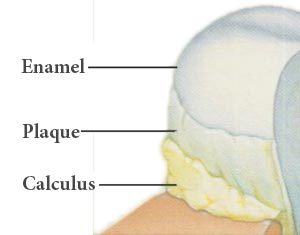Thanksgiving is a time for family gatherings, gratitude, and, of course, delicious food. However, with all the sweet treats and hearty meals on the table, it’s easy to overlook dental health during the festivities. Dr. Rylan Hansen’s family dental office in Apex, North Carolina, wants to help you enjoy Thanksgiving while keeping your smile in great shape. Here are some fun and helpful dental tips to make sure your teeth stay healthy and your smile remains bright throughout the holiday season.
1. Start with the Veggies!
While it’s tempting to go straight for the turkey, stuffing, and pies, starting your meal with vegetables can be a great strategy for your teeth. Crunchy veggies like carrots, celery, and bell peppers can help clean your teeth naturally by scrubbing away plaque and food particles. Vegetables also stimulate saliva production, which neutralizes acids and washes away bacteria, helping to keep your mouth cleaner and reducing the risk of cavities.
2. Limit Sugary Treats
Pumpkin pie, pecan pie, and cranberry sauce are holiday staples, but they can also be high in sugar. Sugar feeds bacteria in the mouth, which can lead to acid production and enamel erosion, increasing the risk of cavities. While you don’t have to avoid sweets entirely, try to limit your intake and opt for healthier dessert options when possible. If you can’t resist a slice of pie, consider drinking water afterward to help wash away some of the sugar left on your teeth.
3. Drink Plenty of Water
Water is your best friend during a big Thanksgiving meal. It not only helps you stay hydrated but also washes away food particles and reduces the impact of acidic and sugary foods on your teeth. Drinking water between bites and after eating can prevent food from sticking to your teeth and help maintain a balanced pH in your mouth. Plus, if you’re drinking wine or other acidic beverages, water can help minimize staining and reduce the acidity’s effect on your enamel.
4. Choose Cheese as a Smart Snack
Cheese is often a part of Thanksgiving appetizers, and it’s actually a tooth-friendly choice! Cheese is high in calcium, which helps strengthen tooth enamel, and its low acidity is less harmful to teeth. Additionally, cheese stimulates saliva production, which helps neutralize the acids produced by other foods. So, if you’re looking for a healthier snack option to enjoy while mingling, don’t hesitate to indulge in a bit of cheese.
5. Don’t Skip Your Post-Meal Brushing
After a big meal, it’s tempting to relax and enjoy the company of friends and family. However, taking a few minutes to brush your teeth can be a game-changer for your oral health. Wait about 30 minutes after your meal to allow your enamel to harden back up, then brush your teeth to remove leftover food particles and plaque. This can prevent plaque buildup and reduce the risk of cavities or gum disease. If you’re not at home, consider packing a travel toothbrush or some floss to keep your teeth clean on the go.
6. Be Mindful of Sticky Foods
Sticky foods like marshmallow-covered yams, stuffing, and caramel-based desserts can cling to your teeth and increase the risk of decay. Sticky foods are more challenging to remove and can easily get trapped between teeth, providing a feast for cavity-causing bacteria. If you indulge in sticky treats, make sure to drink water afterward and consider flossing to remove any stubborn bits.
7. Bring a Pack of Sugar-Free Gum
Chewing sugar-free gum after a meal is a simple way to freshen your breath and protect your teeth. Chewing gum increases saliva production, which helps wash away food particles and neutralize acids. Look for gum that contains xylitol, a natural sweetener that can help reduce bacteria in the mouth. Having a pack of sugar-free gum handy is a convenient way to keep your mouth feeling fresh throughout the holiday.
8. Schedule Your Post-Holiday Checkup
Thanksgiving is a busy time, but don’t forget to prioritize your dental health afterward. Scheduling a post-holiday checkup with Dr. Hansen’s office in Apex, NC, can ensure your teeth are in good shape for the rest of the holiday season. A professional cleaning can remove any plaque buildup and address any dental concerns before they become more significant issues.
Enjoy a Happy and Healthy Thanksgiving!
At Dr. Rylan Hansen’s family dental practice in Apex, NC, we believe in helping our patients enjoy the holidays without compromising their dental health. By following these fun and simple tips, you can savor your Thanksgiving favorites while keeping your teeth strong and healthy. A few mindful choices can make a big difference for your smile—and ensure that it’s just as bright at the end of the holiday season as it was at the beginning.
For more advice on keeping your teeth healthy or to schedule a post-Thanksgiving appointment, contact Dr. Hansen’s office in Apex, North Carolina. Have a happy, tooth-friendly Thanksgiving!



